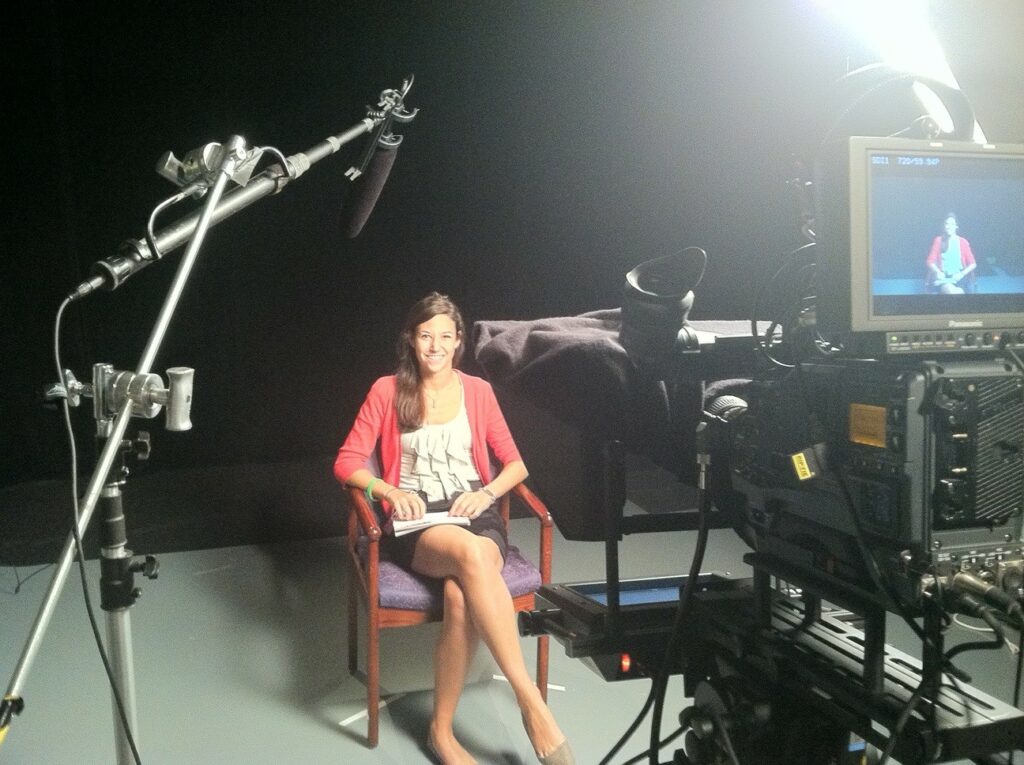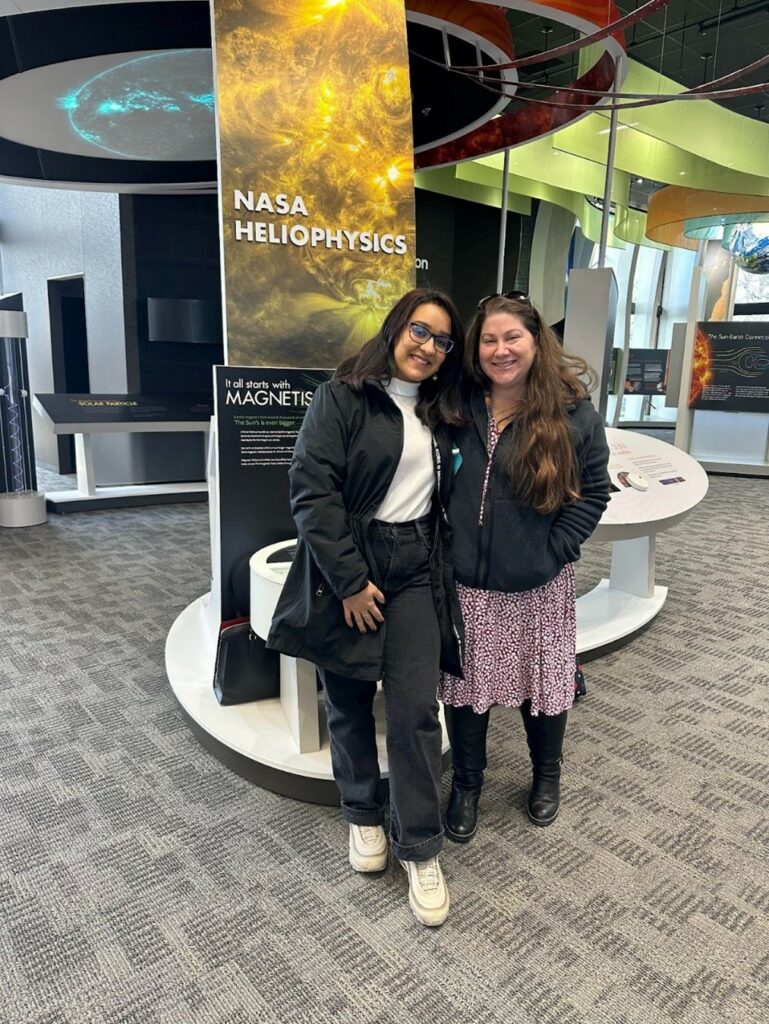Every year, across the U.S., NASA welcomes over 2,000 interns into our workforce. Each of these interns is also given a mentor who serves a dual role as both a guide and supervisor as they start their careers.
Today, on #NationalMentoringDay we’re celebrating some of the incredible connections that our mentors have helped create by highlighting stories from current interns, past interns, and mentors alike. Below is a selection of out-of-this-world experiences shared by our workforce.
Erin Kisliuk | Former NASA Headquarters Intern & Intern Mentor
How did your mentor influence your career path?
Early on in my internship, my mentor tasked me to schedule interviews with people on our team to learn more about everyone and their roles. What I couldn’t have predicted was all the ways this task would aid in my future.
First, it gave me the confidence to cold call (actually, cold email) people that I didn’t know, which is intimidating. It also taught me about time management and scheduling. These are skills I’ve used time and time again during my career, but also while on the job hunt.
Secondly, it taught me about the depth and breadth of the types of roles that exist on teams at NASA. Before this exercise, I would always say I wanted to do “Space Communications” without realizing the nuances of website, events, outreach, social media, and public relations. Once I could differentiate these roles, I could also identify which parts of communications really made me tick.
Most importantly, it was the beginning of my professional network. Each new person I’d talk to would suggest someone else I should add to my list and I continued these interviews for the duration of my internship. These connections would eventually set me up in a way that would help me learn about and land roles at NASA throughout my career.

What was it like as a former intern becoming a mentor?
It really felt like a full-circle moment for me. I reflected on what made my internship exciting and valuable and wanted to pass that experience along to my interns. I want them to work hard and learn new skills, but I also want them to make friends and connect with other interns and people at NASA because that is the foundation of their professional network.
Mentoring interns was also my first management experience. Sometimes it feels odd to look at it that way, but it was my first time explaining and assigning a task and then following up on it to make sure my interns understood the assignment and were meeting milestones so that they could have a completed project that they could be proud of at the end of their session.
Mentoring is a win-win. The person being mentored is offered knowledge, experience, and companionship from the mentor. But mentors also grow by being able to connect with and learn from the incoming or future workforce. At NASA, we’re always trying to explore innovate, and educate. We can only get there by working together to pass along institutional knowledge and creating a workplace where people feel supported and open to learning and trying new things. To me, that’s what mentoring is all about.

Angel Kumari | NASA’s Goddard Space Flight Center Intern
How have your mentors influenced your career path?
Mentors have been crucial in my career development, especially at NASA. My mentors, Wade Sisler, and Michelle Handleman always offer their unwavering support, invaluable guidance, a wealth of experience, and unceasing encouragement. My NASA mentors are instrumental in my professional journey by connecting me with a network of like-minded individuals, exposing me to diverse projects, and challenging me to take on more responsibilities.

Why do you think mentors are important – in general, but also at NASA specifically?
Over the years, I have learned that mentorship is a two-way street. A mentee has to ask for help when they need it to receive the help. My wonderful mentors offer me their unique perspectives without forcing me to take one decision over the other. They are also supportive in letting me test new ideas while actively listening to my experiences. A good mentor will also hold you accountable and provide feedback on how you are performing which is essential. I am immensely fortunate to have exceptional mentors who continue to empower me to explore my career at NASA.

Matt McDonnell | NASA’s Johnson Space Center Intern
How have your mentors influenced your career path?
Mentors have helped me define the path that I’d like to follow throughout my life. With their guidance, I’ve been able to plan my next moves and anticipate upcoming challenges while also leaving space to enjoy the moment! At NASA, internship mentors are excellent examples of great mentors. They’ve helped me connect my educational background to real-world experience, apply my knowledge to important problems, and find places where I can continue to grow, all while leaving space to look around and appreciate how insanely cool the work that we do really is.

What do you think makes someone a great mentor?
I believe anyone can be a great mentor, but it lies in two main factors – experience and approachability. You have to know what you’re talking about to give proper advice, and it also helps if you’ve lived through the experience before. Mentors that I’ve had have years of experience in the fields that they assist me with. But on top of knowledge, you also have to be willing to share it. Great mentors are friendly, approachable, and eager to share their wisdom with you. The “I want to help you” attitude is really what strikes me as an excellent mentor.

Join us! Apply for a NASA Internship
Now that you’ve seen the behind-the-scenes out-of-the-world experiences that mentorship through a NASA internship offers, we hope you’ll consider becoming a NASA intern yourself — or, if you’re already part of the team, continuing your internship for an additional session. As a friendly reminder: our Summer 2024 OSTEM Internship applications close on February, 2. 2024.

Leave a Reply